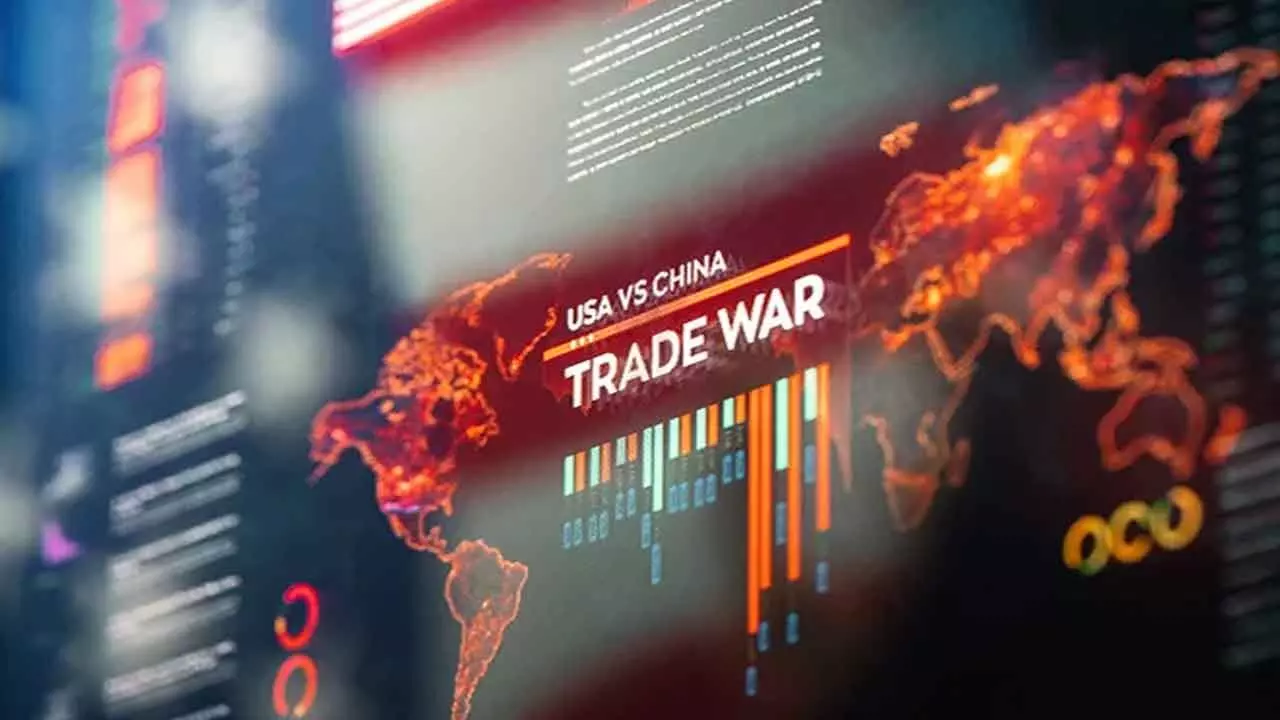Additional US Tariffs On China Could Trigger A Destructive Trade War
The Commerce Ministry dismissed these as being ‘completely groundless and a typical unilateral bullying practice’
Additional US Tariffs On China Could Trigger A Destructive Trade War

Not only could that increase prices for American consumers, it could also give China an incentive to flood other countries with cheaper goods and seek deeper relationships with other trading partners
China said it would “fight to the end” and take countermeasures against the United States to safeguard its own interests after President Donald Trump threatened an additional 50 per cent tariff on Chinese imports.
The Commerce Ministry said the US' imposition of “so-called reciprocal tariffs'” on China is “completely groundless and is a typical unilateral bullying practice.”
China has taken retaliatory tariffs and the ministry hinted in its latest statement that more may be coming.
“The countermeasures China has taken are aimed at safeguarding its sovereignty, security and development interests, and maintaining the normal international trade order. They are completely legitimate,” the ministry said.
“The US threat to escalate tariffs on China is a mistake on top of a mistake and once again exposes the blackmailing nature of the US. China will never accept this. If the US insists on its own way, China will fight to the end,” it said.
Trump's threat of additional tariffs on China raised fresh concerns that his drive to rebalance the global economy could intensify a financially destructive trade war. Stock markets from Tokyo to New York have become more unstable as the tariff war worsens.
“If China does not withdraw its 34 per cent increase above their already long term trading abuses by April 8, the United States will impose additional tariffs of 50 per cent, effective from Wednesday,” Trump wrote on Truth Social.
“Additionally, all talks with China concerning their requested meetings with us will be terminated!”
If Trump implements his new tariffs on Chinese products, US tariffs on Chinese goods would reach a combined 104 per cent. The new taxes would be on top of the 20 per cent tariffs announced as punishment for fentanyl trafficking and his separate 34 per cent tariffs announced last week. Not only could that increase prices for American consumers, it could also give China an incentive to flood other countries with cheaper goods and seek deeper relationships with other trading partners, particularly the European Union. Trump frequently bragged about stock market gains during his first term, and the threat of losses on Wall Street was viewed as a potential guardrail on risky economic policies in his second term. But that hasn't been the case, and Trump has described days of financial pain as necessary.
“I don't mind going through it because I see a beautiful picture at the end,” he said.
Trump officials have frequently appeared on television to make the case for his policies, but none of their explanations has calmed the markets. The only improvement came from a false report that top economic adviser Kevin Hassett said Trump was considering a pause on all tariffs except for China. Stock prices spiked before the White House denied it by calling the post “fake news.” China is one of the US's top trading partners, especially for consumer goods, and the tariffs — essentially a tax on imports paid by US companies — will eventually be passed on to the consumer. Federal Reserve Chair Jerome Powell had warned of Friday that the tariffs could increase inflation, and he said, “There's a lot of waiting and seeing going on, including by us,” before any decisions would be made.

